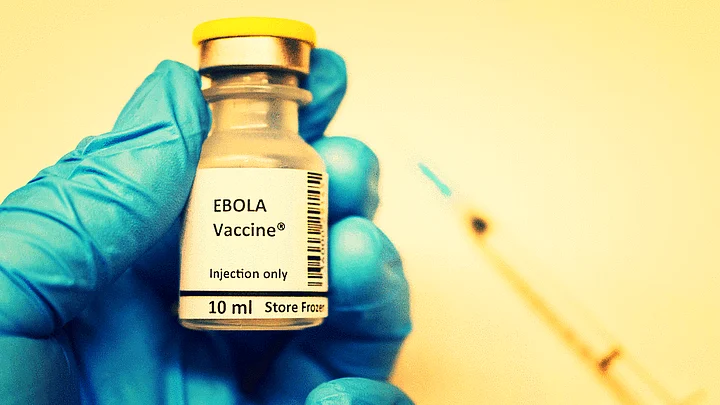An ebola outbreak, that was first detected on 20 September, has now gripped five districts of the east African nation of Uganda, and is suspected of infecting at least 64 people in the country.
At least 30 people, including four health workers, have succumbed to the virus so far, according to the Ugandan government.
The outbreak has been caused by the Sudan virus species, for which no vaccine is available yet.
“The situation is serious, but ebola is not new to Uganda. The country is familiar with the rapid-response measures needed to contain the virus."Fiona Braka, an emergency-response programme manager at the World Health Organization Regional Office for Africa in Congo, to Nature
How Deadly Is Ebola?
Ebola has a death rate of 41-100 percent, according to the World Health Organization (WHO). It is spread due to contact with an infected person’s bodily fluids or their blood, and isn’t airborne. The symptoms usually include fever, vomiting, headache, diarrhoea, muscle pain, bleeding, and fatigue.
But the virus can also cause damage to internal organs fatally.
An ebola outbreak hit Uganda in 2000 that killed 224 people and infected another 425 people. Another outbreak from 2014-18 killed nearly 11,000 people and spread to neighbouring countries as well.
Why Isn’t There a Vaccine?
The ebola outbreak from 2013-16 was caused by the Zaire strain, following which two vaccines were developed for the same. However, there’s no vaccine for the Sudan strain that has caused the current outbreak and was also responsible for the ebola outbreak in 2012.
While three vaccines have “undergone early tests,” as per Nature, larger trials haven’t been done yet.
However, a single-dose vaccine developed in the United States by the National Institute of Allergy and Infectious Diseases (licensed to the Sabin Vaccine Institute) can be used for protection against the Sudan species, which is why 100 doses of the vaccine could be shipped to Uganda this week, according to NIAID Vaccine Research Center’s director Richard Coup.
What Is Uganda Doing To Control the Outbreak?
Health officials in Uganda have set up a 51-bed hospital and a mobile laboratory in Mubende, where they are detecting the virus from samples within six hours. The WHO has urged neighbouring countries to distribute test kits and keep a check on the virus.
Preventive measures are being undertaken to control the virus, in absence of a vaccine. The government is also reportedly making announcements onhow to avoid contagion, and is helping the patients identify and target the symptoms.
According to the Independent, Uganda will also be hosting a ministerial meeting this week on the outbreak with neighbouring countries that have been previously affected by ebola.
Has the Virus Spread to Other Countries As Well?
The virus has not been reported anywhere outside Uganda. However, the US has announced that it will redirect any travellers from Uganda, in the last 21 days, to be screened for ebola.
The United Kingdom is also monitoring the situation, but is maintaining that the situation is “low-risk.”
(At The Quint, we question everything. Play an active role in shaping our journalism by becoming a member today.)
